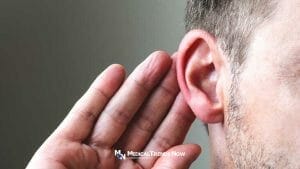Table of Contents
Hearing loss is a common concern among older adults, and caregivers often play a crucial role in providing support and assistance. Understanding the challenges associated with hearing loss and learning effective strategies for communication and care can greatly enhance the well-being of both older adults and their caregivers. In this article, we’ll explore valuable tips for handling hearing loss in older adults with care and empathy.
Understanding Hearing Loss
Hearing loss can result from various factors, including age-related changes, exposure to loud noises, or underlying medical conditions. It’s essential for caregivers to have a clear understanding of the following aspects:
- Definition and Types: Hearing loss can be categorized into sensorineural, conductive, or mixed types. Each type requires different approaches to management and care.
- Common Causes: Knowing the common causes of hearing loss, such as age-related presbycusis or exposure to noise, helps caregivers identify potential risk factors.
- Impact on Well-being: Untreated hearing loss can affect an older adult’s quality of life, leading to isolation and frustration. Addressing hearing loss promptly can prevent these negative consequences.
- Cognitive Connection: Recent research suggests a connection between untreated hearing loss and cognitive decline. Caregivers should be aware of this link and take proactive steps.
- Age-Related Changes: Understand that age-related changes in the auditory system are natural and can contribute to hearing loss. This knowledge fosters empathy and patience.
Recognizing Signs of Hearing Loss
Early detection of hearing loss is crucial for effective intervention. Caregivers should look out for these signs:
- Common Signs: Be aware of common signs like difficulty following conversations, frequently asking others to repeat themselves, or turning up the volume excessively on electronic devices.
- Importance of Early Detection: Emphasize the significance of early detection to the older adult and encourage regular hearing check-ups.
- Self-Assessment Tools: Explore self-assessment tools and encourage their use for self-monitoring of hearing.
- Subtle Behavioral Changes: Understand that hearing loss can lead to subtle behavioral changes, such as withdrawal from social activities or increased frustration.
- Link to Depression: Recognize that untreated hearing loss can contribute to depression. Addressing hearing loss can have a positive impact on emotional well-being.

Challenges and Concerns for Caregivers
Caregivers often encounter various challenges when assisting older adults with hearing loss:
- Communication Difficulties: Communication can become challenging, leading to misunderstandings and frustration for both the caregiver and the older adult.
- Social Isolation: Hearing loss can result in social isolation, as older adults may withdraw from group activities due to difficulty hearing and participating.
- Safety Concerns: Be aware of safety concerns related to hearing loss, such as not hearing alarms or warning signals.
- Financial Implications: Understand the financial implications of hearing loss care, including the cost of hearing aids and assistive devices.
- Legal Considerations: Familiarize yourself with legal considerations related to hearing-impaired individuals, including disability rights and advocacy.
Tips for Effective Communication
Effective communication strategies are key to improving the caregiving experience:
- Strategies for Clear Communication: Practice clear communication by facing the older adult, speaking slowly and clearly, and using gestures when necessary.
- Assistive Devices: Explore assistive devices like hearing aids and personal amplifiers, which can significantly improve communication.
- Non-Verbal Techniques: Utilize non-verbal communication techniques, such as visual cues and facial expressions, to convey messages.
- Promote Patience: Encourage patience when communication becomes challenging. Avoid interrupting or finishing sentences for the older adult.
- Assertive Communication: Encourage the older adult to express their needs and preferences assertively to facilitate effective communication.
Emotional Support and Coping
Addressing the emotional well-being of older adults with hearing loss is vital:
- Emotional Well-being: Acknowledge the emotional impact of hearing loss and provide emotional support.
- Coping Strategies: Help older adults develop coping strategies, such as mindfulness and stress reduction techniques.
- Open Dialogue: Encourage open dialogue about feelings and frustrations related to hearing loss.
- Support Network: Recognize the importance of a supportive network of friends and family members.
- Caregiver Self-Care: Caregivers should practice self-care to prevent burnout and effectively support their loved ones.
Seeking Professional Help
Seeking professional help is essential for managing hearing loss effectively:
- Role of Audiologists: Understand the role of audiologists and healthcare professionals in diagnosing and treating hearing loss.
- Steps for Evaluation: Familiarize yourself with the steps involved in getting a hearing evaluation, including hearing tests and assessments.
- Hearing Aid Fitting: Learn about the process of hearing aid fitting and adjustments for optimal use.
- Rehabilitative Services: Explore rehabilitative services and therapies designed to improve hearing and communication.
- Telehealth Options: Inquire about telehealth options for hearing healthcare, especially during times when in-person appointments may be challenging.
Resources and Support
Numerous resources and support options are available for caregivers and older adults with hearing loss:
- Organizations and Services: Connect with organizations and services dedicated to hearing loss support and education.
- Financial Assistance: Explore financial assistance programs and insurance options to help cover the costs of hearing aids and services.
- Workshops and Support Groups: Participate in hearing loss-related workshops and support groups to gain valuable insights and connect with others facing similar challenges.
- Online Resources: Access online resources and educational materials for further information and guidance.
- Legal and Advocacy Resources: Familiarize yourself with legal and advocacy resources that protect the rights of hearing-impaired individuals and their caregivers.
Conclusion
In conclusion, addressing hearing loss in older adults requires empathy, understanding, and effective communication. Caregivers can make a significant difference in the lives of their older relatives by proactively addressing hearing loss, seeking professional help when needed, and providing emotional support. Remember that hearing loss management is a journey, and with the right strategies and resources, both caregivers and older adults can enjoy improved well-being and quality of life.
Pat Baker is a member of a multi-generational household, who is concerned about hearing loss, and writes for home care agencies in the Philadelphia area.









